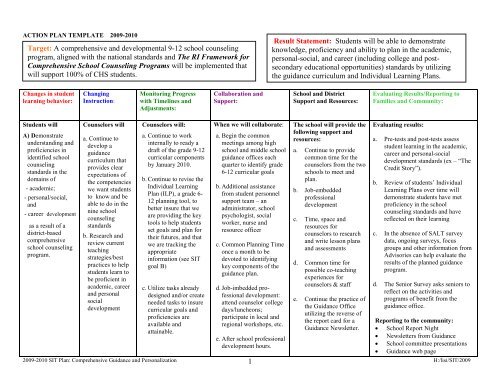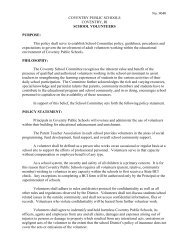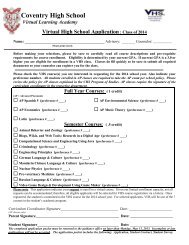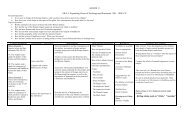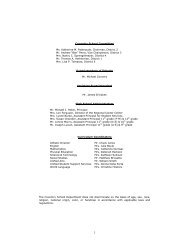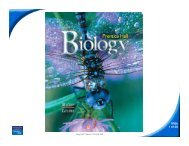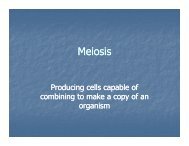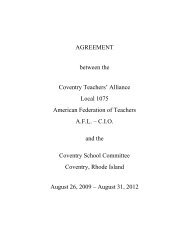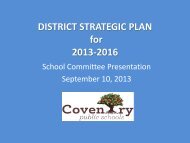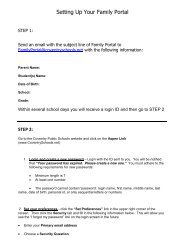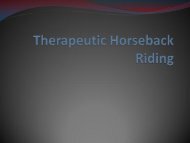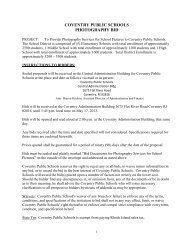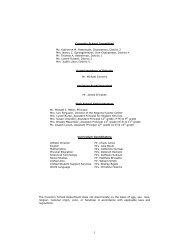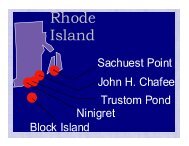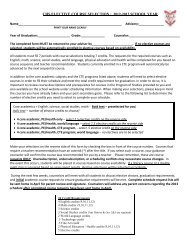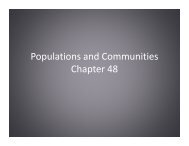Action Plan Template - Coventry High School
Action Plan Template - Coventry High School
Action Plan Template - Coventry High School
Create successful ePaper yourself
Turn your PDF publications into a flip-book with our unique Google optimized e-Paper software.
ACTION PLAN TEMPLATE 2009-2010<br />
Target: A comprehensive and developmental 9-12 school counseling<br />
program, aligned with the national standards and The RI Framework for<br />
Comprehensive <strong>School</strong> Counseling Programs will be implemented that<br />
will support 100% of CHS students.<br />
Result Statement: Students will be able to demonstrate<br />
knowledge, proficiency and ability to plan in the academic,<br />
personal-social, and career (including college and postsecondary<br />
educational opportunities) standards by utilizing<br />
the guidance curriculum and Individual Learning <strong>Plan</strong>s.<br />
Changes in student<br />
learning behavior:<br />
Changing<br />
Instruction:<br />
Monitoring Progress<br />
with Timelines and<br />
Adjustments:<br />
Collaboration and<br />
Support:<br />
<strong>School</strong> and District<br />
Support and Resources:<br />
Evaluating Results/Reporting to<br />
Families and Community:<br />
Students will<br />
A) Demonstrate<br />
understanding and<br />
proficiencies in<br />
identified school<br />
counseling<br />
standards in the<br />
domains of<br />
- academic;<br />
- personal/social,<br />
and<br />
- career development<br />
as a result of a<br />
district-based<br />
comprehensive<br />
school counseling<br />
program.<br />
Counselors will<br />
a. Continue to<br />
develop a<br />
guidance<br />
curriculum that<br />
provides clear<br />
expectations of<br />
the competencies<br />
we want students<br />
to know and be<br />
able to do in the<br />
nine school<br />
counseling<br />
standards<br />
b. Research and<br />
review current<br />
teaching<br />
strategies/best<br />
practices to help<br />
students learn to<br />
be proficient in<br />
academic, career<br />
and personal<br />
social<br />
development<br />
o<br />
Counselors will:<br />
a. Continue to work<br />
internally to ready a<br />
draft of the grade 9-12<br />
curricular components<br />
by January 2010.<br />
b. Continue to revise the<br />
Individual Learning<br />
<strong>Plan</strong> (ILP), a grade 6-<br />
12 planning tool, to<br />
better insure that we<br />
are providing the key<br />
tools to help students<br />
set goals and plan for<br />
their futures, and that<br />
we are tracking the<br />
appropriate<br />
information (see SIT<br />
goal B)<br />
c. Utilize tasks already<br />
designed and/or create<br />
needed tasks to insure<br />
curricular goals and<br />
proficiencies are<br />
available and<br />
attainable.<br />
o When we will collaborate:<br />
a. Begin the common<br />
meetings among high<br />
school and middle school<br />
guidance offices each<br />
quarter to identify grade<br />
6-12 curricular goals<br />
b. Additional assistance<br />
from student personnel<br />
support team – an<br />
administrator, school<br />
psychologist, social<br />
worker, nurse and<br />
resource officer<br />
c. Common <strong>Plan</strong>ning Time<br />
once a month to be<br />
devoted to identifying<br />
key components of the<br />
guidance plan.<br />
d. Job-imbedded professional<br />
development:<br />
attend counselor college<br />
days/luncheons;<br />
participate in local and<br />
regional workshops, etc.<br />
e. After school professional<br />
development hours.<br />
The school will provide the<br />
following support and<br />
resources:<br />
a. Continue to provide<br />
common time for the<br />
counselors from the two<br />
schools to meet and<br />
plan.<br />
b. Job-embedded<br />
professional<br />
development<br />
c. Time, space and<br />
resources for<br />
counselors to research<br />
and write lesson plans<br />
and assessments<br />
d. Common time for<br />
possible co-teaching<br />
experiences for<br />
counselors & staff<br />
e. Continue the practice of<br />
the Guidance Office<br />
utilizing the reverse of<br />
the report card for a<br />
Guidance Newsletter.<br />
Evaluating results:<br />
a. Pre-tests and post-tests assess<br />
student learning in the academic,<br />
career and personal-social<br />
development standards (ex – “The<br />
Credit Story”).<br />
b. Review of students’ Individual<br />
Learning <strong>Plan</strong>s over time will<br />
demonstrate students have met<br />
proficiency in the school<br />
counseling standards and have<br />
reflected on their learning<br />
c. In the absence of SALT survey<br />
data, ongoing surveys, focus<br />
groups and other information from<br />
Advisories can help evaluate the<br />
results of the planned guidance<br />
program.<br />
d. The Senior Survey asks seniors to<br />
reflect on the activities and<br />
programs of benefit from the<br />
guidance office.<br />
Reporting to the community:<br />
<strong>School</strong> Report Night<br />
Newsletters from Guidance<br />
<strong>School</strong> committee presentations<br />
Guidance web page<br />
2009-2010 SIT <strong>Plan</strong>: Comprehensive Guidance and Personalization 1<br />
H:/lisi/SIT/2009
Students will:<br />
B) Utilize their<br />
Individual<br />
Learning <strong>Plan</strong>s<br />
(ILP) to record<br />
their growth as a<br />
learner in the<br />
academic,<br />
personal-social<br />
and career<br />
domains, as well<br />
as plan for their<br />
schooling and<br />
post-secondary<br />
options.<br />
Counselors will:<br />
Continue to<br />
research and<br />
review different<br />
ways to teach the<br />
academic,<br />
personal-social and<br />
career competencies<br />
that will be<br />
recorded in the ILP<br />
Continue to meet<br />
routinely with each<br />
student to help<br />
students develop,<br />
write and update<br />
components of<br />
their Individual<br />
Learning <strong>Plan</strong>s.<br />
Monitor/review all<br />
students’ ILPs to<br />
include:<br />
- yearly goal<br />
setting<br />
- a 4 year plan, a<br />
mechanisms to<br />
track academic<br />
attainment and<br />
growth<br />
- planning for life<br />
after high<br />
school<br />
- reflections<br />
Work with the<br />
PBGR office to<br />
utilize Guidance<br />
tasks as PBGR<br />
portfolio-worthy<br />
tasks<br />
Counselors will:<br />
Continue to work with<br />
RIHEAA to explore the<br />
feasibility of the on-line<br />
ILP via the Way-to-Go-RI<br />
portal.<br />
Continue to work with<br />
advisory teachers to help<br />
students understand how<br />
the ILP helps track their<br />
growth, as well as<br />
develop an academic plan<br />
for them to follow<br />
through high school.<br />
Continue to monitor<br />
student progress in the<br />
academic domain by<br />
insuring Carnegie units<br />
are being met and that<br />
sufficient progress is<br />
being made towards<br />
meeting their<br />
Proficiency-based<br />
graduation requirements.<br />
Continue to monitor<br />
student progress in the<br />
personal-social domain by<br />
collecting and analyzing<br />
data of inappropriate or<br />
non-learned behaviors and<br />
designing a plan/referral<br />
to address the behaviors.<br />
Continue to monitor<br />
student progress in the<br />
career domain by<br />
assessing the student<br />
career/college plans<br />
(including career<br />
inventories, on-line<br />
When we will collaborate:<br />
Continue to use common<br />
planning time meetings<br />
Guidance staffs from both<br />
schools will continue to<br />
meet to review ILP<br />
progress, trouble-shoot<br />
issues, discuss progress, and<br />
to review the potential use<br />
of the Way-to-Go-RI portal<br />
from the RI <strong>High</strong>er<br />
Education Assistance<br />
Authority (RIHEAA)<br />
Strengthen the partnership<br />
with RIHEAA as we<br />
explore possibility of a<br />
digital ILP<br />
Explore collaboration<br />
between counselors and the<br />
PBGR coordinators and<br />
teachers of the Capstone<br />
class. As this required class<br />
includes a career exploration<br />
unit, counselors could<br />
possibly co-teach career<br />
development/ college<br />
information to students that<br />
will become a portfolioworthy<br />
task.<br />
Guidance Advisory Council,<br />
comprised of parents,<br />
teachers and students, meets<br />
quarterly.<br />
The school will provide the<br />
following support and<br />
resources:<br />
Funds to update and print<br />
additional ILPs if we stay<br />
with paper version<br />
Continued support of the<br />
guidance program in<br />
allowing counselors to<br />
access advisories on a<br />
weekly basis<br />
Use of computer labs,<br />
Smartboards and other<br />
technology to enable college<br />
and career searches, the<br />
results of which are part of<br />
the student’s ILP.<br />
Evaluating results:<br />
<br />
<br />
<br />
Student’s ILP, including the<br />
academic “Four Year <strong>Plan</strong>” is<br />
reviewed to insure student fully<br />
understands career choice, goals,<br />
and proper academic alignment to<br />
career interest. <strong>Plan</strong>s, career<br />
goals, PSAT/SAT scores,<br />
ASVAB results, NECAP<br />
assessment scores, etc. are<br />
entered and used to help students<br />
plan their academic goals both in<br />
high school and in contemplating<br />
post-secondary options.<br />
Pre-post tests in Advisory<br />
identify general understanding of<br />
career awareness.<br />
Student results of their work<br />
investigating careers colleges, are<br />
reviewed and assessed, and added<br />
to the ILP.<br />
Student’s educational/ career<br />
goals are shared with parents of<br />
juniors via letter from counselor<br />
(data-merge) with final report<br />
card<br />
Data is gathered from the senior<br />
survey regarding post-high school<br />
plans; additional –and more<br />
reliable – data is hoped to be<br />
gathered by phone calls six<br />
months following graduation<br />
Reporting to the community:<br />
<strong>School</strong> Report Night<br />
Newsletters<br />
<strong>School</strong> committee presentations<br />
<strong>School</strong> profile sheet<br />
2009-2010 SIT <strong>Plan</strong>: Comprehensive Guidance and Personalization 2<br />
H:/lisi/SIT/2009
programs, ASVAB, etc)<br />
and insuring students<br />
understand all potential<br />
options and opportunities<br />
available<br />
Students will:<br />
C) Develop a<br />
deeper understanding<br />
and<br />
appreciation of the<br />
importance of<br />
attending college or<br />
some other type of<br />
post-secondary<br />
training in order to<br />
develop a better<br />
understanding of the<br />
richer options and<br />
opportunities<br />
available to them<br />
Counselors will:<br />
Continue to utilize<br />
the ILP (and career<br />
development/<br />
college search<br />
computer/webbased<br />
programs) to<br />
track exploration<br />
and understanding<br />
of post-secondary<br />
educational options.<br />
Encourage the<br />
taking of the PSAT<br />
test, a good predictor<br />
of students<br />
who eventually<br />
will take the SAT.<br />
As this is no longer<br />
a paid assessment<br />
by the state, additional<br />
work must<br />
be done to help<br />
students understand<br />
its value.<br />
Re-engage in a<br />
variety of college<br />
support activities,<br />
including visits<br />
from college reps,<br />
speakers from the<br />
RI <strong>High</strong>er<br />
Education Authority,<br />
classroom<br />
visits, evening<br />
workshops for<br />
Counselors will:<br />
Provide further PSAT<br />
information and letters<br />
home in Sept. to<br />
encourage grade 10 and<br />
11 students to take the<br />
PSAT<br />
To increase PSAT scores,<br />
further provide ELA and<br />
math teachers information<br />
and practice PSAT test<br />
questions in Sept.<br />
Increase by 5% the<br />
number of students enroll<br />
ed in the SAT prep class<br />
via our continuing<br />
Partnership with<br />
Revolution Prep.<br />
Continue to stress college<br />
opportunities,<br />
scholarships, financial<br />
aid, etc. so that postsecondary<br />
education and<br />
colleg-going is a natural<br />
consequence of attending<br />
<strong>Coventry</strong> <strong>High</strong>.<br />
Counselors to track these<br />
discussions on<br />
spreadsheet.<br />
When we will collaborate:<br />
Continue to work with math<br />
and ELA curriculum<br />
coordinators to encourage<br />
students to sign up for<br />
PSAT/SAT, look at<br />
colleges, etc. in Aug/Sept.<br />
Continue discussions (dept.<br />
meetings) with ELA and<br />
math regarding curriculum<br />
alignment in light of GSEs<br />
and NECAP results<br />
Collaboration among<br />
counseling staff, leadership<br />
meetings with curriculum<br />
coordinators and the PTSA.<br />
Continue to engage our<br />
partnership with Revolution<br />
Prep, a SAT prep class in<br />
our school<br />
Investigate how our<br />
Guidance Advisory Council<br />
can support this program<br />
(e.g. – staff a career &<br />
college materials center).<br />
Begin to collaborate with<br />
our <strong>School</strong> Based<br />
Coordinator in hosting a<br />
Career Fair in the Fall of<br />
2009.<br />
The school will provide the<br />
following support and<br />
resources:<br />
Insure PSAT practice tests<br />
are ordered and distributed<br />
in a timely manner to<br />
students wishing to take<br />
PSAT.<br />
Financial support for<br />
college /career speaker<br />
honorariums<br />
Financial support for<br />
personnel to conduct postgraduate<br />
data tracking<br />
To encourage students to<br />
take more than one AP<br />
course, provide financial<br />
support for any student<br />
taking more than one AP<br />
exam (the AP exam is<br />
mandatory).<br />
Evaluating results:<br />
Since seniors graduation in 2010<br />
would not have had RIDE<br />
funding support for the PSAT<br />
What is the effect on<br />
students taking the PSAT?<br />
Scores affected?<br />
SAT takers affected?<br />
Any effect on college-going<br />
rate?<br />
Has there been an economic<br />
factor?<br />
<br />
<br />
<br />
<br />
Examine PSAT and SAT results<br />
reported by the College Board<br />
and recorded on counselor data<br />
base<br />
Scores disaggregated by<br />
demographic and academic<br />
variables to identify learning<br />
deficits.<br />
Continue to examine the number<br />
of initial transcripts sent to<br />
colleges as well as the number of<br />
final transcripts sent out.<br />
From self-reporting Senior<br />
Survey, ascertain the number of<br />
graduating seniors entering both<br />
2 and 4 year colleges, the<br />
military, and the world of work –<br />
Is there a difference this year?<br />
2009-2010 SIT <strong>Plan</strong>: Comprehensive Guidance and Personalization 3<br />
H:/lisi/SIT/2009
parents , letters and<br />
newsletter sent<br />
home, “Senior<br />
Bulletin, guidance<br />
Website, SAT prep<br />
class, etc.<br />
Conduct telephone survey of<br />
graduates 6 months after<br />
graduation<br />
Reporting to the community:<br />
<strong>School</strong> Report Night<br />
Newsletters<br />
<strong>School</strong> committee presentations<br />
<strong>School</strong> profile sheet<br />
Students will:<br />
D) upon entering<br />
ninth grade,<br />
experience less<br />
anxiety and stress<br />
regarding their<br />
move to the high<br />
school from the<br />
middle school and<br />
will perform better<br />
academically as a<br />
result of<br />
personalizing their<br />
transition from<br />
middle to high<br />
school.<br />
Counselors will:<br />
Assist at a more<br />
involved level the<br />
middle-to-high<br />
school transition<br />
program that<br />
includes evening<br />
parent, student, and<br />
counselor<br />
meetings. Goal<br />
will be to have<br />
these events<br />
attended by 80% of<br />
the middle school<br />
families.<br />
Be involved in the<br />
programming and<br />
activities of First<br />
Night for incoming<br />
9 th graders, hoping<br />
to serve 90% of<br />
families at this<br />
program.<br />
Counselors will:<br />
o<br />
o<br />
o<br />
Jan – Counselors to<br />
continue to meet with<br />
students in the middle<br />
school and then host<br />
parent-student<br />
evening meeting to<br />
give over-view of the<br />
school, review<br />
scheduling<br />
Expand the<br />
collaboration of<br />
professional staff at<br />
these parent meetings<br />
to include both<br />
principals, dept.<br />
heads, and key staff<br />
(ROTC instructor).<br />
May – Continue to<br />
increase attendance at<br />
meeting with parents<br />
of 8 th graders and<br />
curriculum coordinators<br />
to review course<br />
content and<br />
curriculum.<br />
When we will collaborate:<br />
o<br />
o<br />
o<br />
.<br />
Continue to receive the<br />
support and assistance<br />
of middle school<br />
administration and<br />
counselors.<br />
Continue to work with<br />
grade 9 teachers to<br />
investigate ways to<br />
restructure ninth grade<br />
teaming to improve<br />
teaching and learning.<br />
Assistance from the<br />
Guidance Advisory<br />
Council.<br />
The school will provide the<br />
following support and<br />
resources:<br />
o<br />
o<br />
o<br />
o<br />
o<br />
For evening overview<br />
meeting, middle school<br />
to provide invites via<br />
listserve, mail.<br />
FLEX time for<br />
counselors working in<br />
the evening.<br />
<strong>Plan</strong>ning time to<br />
develop PowerPoint<br />
slide show for parents<br />
and students .<br />
Students to act as<br />
guides and volunteers<br />
to help.<br />
Funding for<br />
professional<br />
development to<br />
collaborate on events<br />
Evaluating results:<br />
Results seen in:<br />
Numbers of parents and students<br />
who attend the evening meetings;<br />
short survey to parents to determine<br />
program effectiveness and to see if<br />
child’s confidence/comfort level<br />
have improved.<br />
Numbers of freshman who feel<br />
prepared when entering 9 th grade in<br />
September (survey when advisories<br />
visited by counselors)<br />
o<br />
Spring - partner with<br />
middle school<br />
counselor to work<br />
with 8 th graders and<br />
parents to give tours<br />
2009-2010 SIT <strong>Plan</strong>: Comprehensive Guidance and Personalization 4<br />
H:/lisi/SIT/2009


